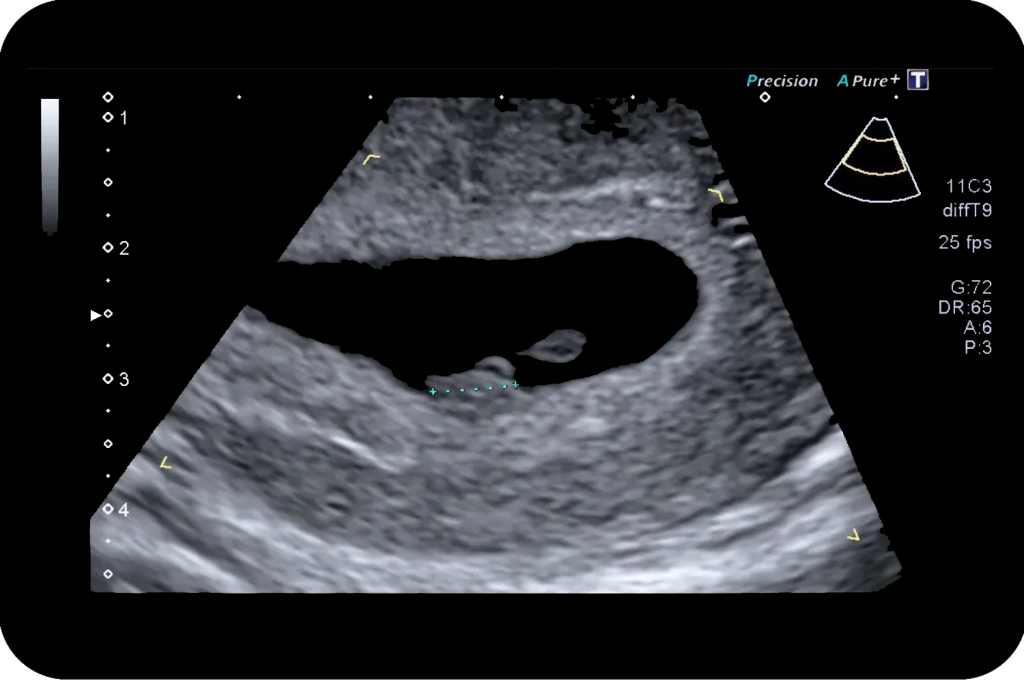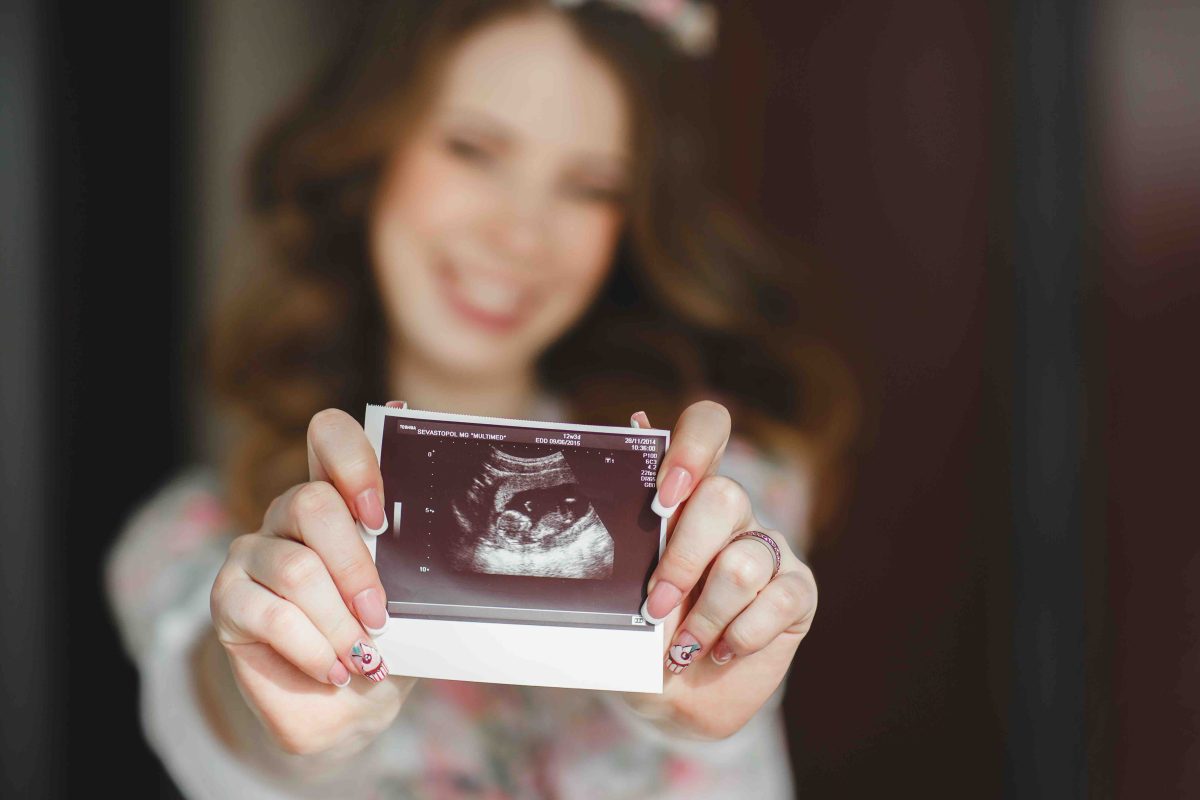By the time you reach 6 weeks pregnant, your pregnancy is progressing rapidly—even if there’s little visible change on the outside. This early stage can be filled with excitement, questions, and sometimes concerns—especially if you experience cramping or you’re anticipating your first ultrasound. Here’s everything you need to know about this key week in your first trimester.
💡 Recap from Week 5
If you’re catching up or missed it, our previous article 5 Weeks Pregnant: Symptoms, Baby Development & Early Pregnancy Signs covers early signs of pregnancy, implantation, and your baby’s first milestones.
🍼 What’s Happening at 6 Weeks Pregnant?
At 6 weeks, your baby is officially called an embryo and is about the size of a sweet pea (roughly 5–9 mm long). Though still tiny, the embryo is rapidly developing critical organs and systems.
👶 Baby’s Development
According to ACOG, this is a critical development stage:
- Heart Development: The biggest highlight? Your baby’s heart is now beating—often detectable via transvaginal ultrasound at this stage. It may be pumping around 100–160 times per minute!
- Brain Growth: The neural tube (which becomes the brain and spinal cord) is closing.
- Facial Features: Eyes, nose, and mouth are beginning to form.
- Limb Buds: Tiny buds will soon become arms and legs.
🤰 Common Symptoms at 6 Weeks Pregnant
While every pregnancy is different, here are symptoms commonly reported at 6 weeks:
1. Morning Sickness
Nausea and vomiting can start around this week, often due to rising hCG hormone levels. Despite the name, it can occur at any time of day.
2. Fatigue
Your body is working overtime. Hormonal shifts, increased blood production, and metabolic changes may leave you feeling exhausted.
3. Tender Breasts
Due to hormone surges, your breasts may feel swollen or sore—early prep for milk production.
4. Mood Swings
Estrogen and progesterone changes can make emotions more intense.
5. Frequent Urination
Increased blood flow and hormonal changes start affecting your kidneys and bladder.
🤕 Cramping at 6 Weeks: When Is It Normal?
Mild cramping during early pregnancy is usually normal. It’s often caused by:
- Uterus stretching to make room for your growing baby
- Implantation (still completing for some)
- Increased blood flow to the pelvic area
However, seek medical attention if cramping is:
- Severe or persistent
- Accompanied by heavy bleeding
- Localized to one side (could indicate ectopic pregnancy)
📌 According to the Mayo Clinic and ACOG, mild early pregnancy cramps are usually harmless, but sharp pain should never be ignored.
🩻 First Ultrasound at 6 Weeks: What to Expect

Some providers schedule a transvaginal ultrasound between 6 and 8 weeks, especially for high-risk pregnancies or if you’ve had previous complications.
🔍 What You Might See at 6 Weeks Pregnant First Ultrasound :
- Gestational sac
- Yolk sac (nourishes the embryo early on)
- Fetal pole (precursor to the spine and body)
- Heartbeat detection (a major milestone!)
📝 Tip: Don’t panic if a heartbeat isn’t seen right at 6 weeks—it might be a bit too early depending on ovulation and implantation timing.
💡 The World Health Organization (WHO) stresses that accurate dating and early screening are essential for maternal health.
🍽️ Nutrition Tips for 6 Weeks Pregnant
It’s time to start (or continue) healthy eating habits that support fetal development:
- Folic acid: Crucial for neural tube formation
- Iron-rich foods: To support increased blood volume
- Hydration: Combat fatigue and support circulation
- Small, frequent meals: Help manage nausea and stabilize blood sugar
✅ Try ginger tea or vitamin B6 for natural nausea relief.
🛌 Lifestyle Recommendations
- Rest often – Don’t fight the fatigue. Rest when needed.
- Avoid harmful substances – No smoking, alcohol, or unprescribed medications.
- Start prenatal visits – If you haven’t already, book your first prenatal appointment now.
- Track symptoms – Apps or journals help you note patterns and talk to your doctor more effectively.
📅 When Should You Call a Doctor?
While most symptoms are normal, contact your provider if you experience:
- Heavy bleeding (like a period or more)
- Severe or one-sided pain
- Fever over 38°C (100.4°F)
- Fainting or dizziness
🧠 Emotional Health
Hormones can affect not just your body but your emotions too. At 6 weeks, some women feel:
- Overwhelmed
- Excited but anxious
- Moody or tearful
It’s completely normal, but if feelings of sadness, anxiety, or detachment linger, consider discussing them with your doctor early. Mental health matters in pregnancy.
❓ Frequently Asked Questions (6 Weeks Pregnant)
Maybe. A transvaginal ultrasound sometimes detects the heartbeat around week 6, but if you’re on the early side of this range, it might be too early.
Mild cramps are often normal—caused by your uterus expanding, increased blood flow, or ongoing implantation. See a doctor if cramps are severe or accompanied by bleeding.
Yes, very common. Many women report nausea starting now, although for some it begins earlier or later. If vomiting is frequent, talk to your doctor.
Generally yes—light to moderate exercise like walking, prenatal yoga, or swimming is safe. Avoid high-impact sports or overheating; consult your healthcare provider for personalized recommendations.
Typically between 6–10 weeks, often transvaginal, to confirm pregnancy location, fetal size, heartbeat, sac, and due date.
Absolutely. Your body produces more blood, and hormonal changes contribute to fatigue. Prioritize rest and listen to your body.
See your provider if you experience:
– Heavy or bright-red bleeding
– Intense or persistent cramps
– Fever above 38 °C
– Pain while urinating
– Dizziness, shoulder pain, or fainting
🗓️ What’s Next? Sneak Peek at Week 7
Coming up: Your baby’s arms and legs start to shape, the brain continues to grow, and your symptoms might intensify. Don’t miss our full Week 7 Pregnancy Guide for what lies ahead.
🔗 Related Articles
- 5 Weeks Pregnant: Symptoms, Baby Development & Early Pregnancy Signs
- 4 weeks pregnant: What’s Happening Inside Your Body?
- Pregnancy Cramping: What’s Normal vs. When to Worry
💬 Final Thoughts
At 6 weeks pregnant, it’s a time of major internal growth for your baby and emotional changes for you. Whether you’re feeling uncertain or overjoyed, know that you’re not alone—and each cramp, flutter, or checkup brings you one step closer to meeting your little one.
Be gentle with yourself. Nourish your body, listen to your instincts, and stay informed. And remember to come back for more as your journey continues.

Leave a Comment